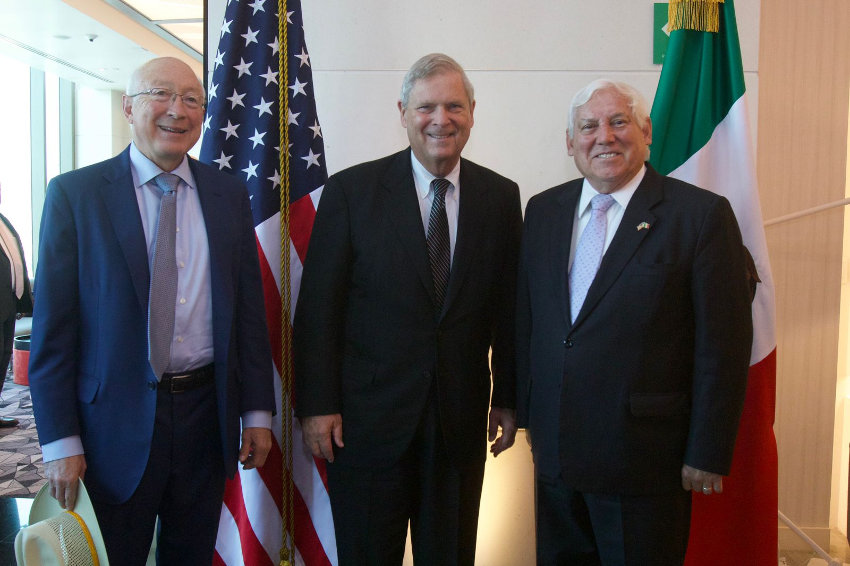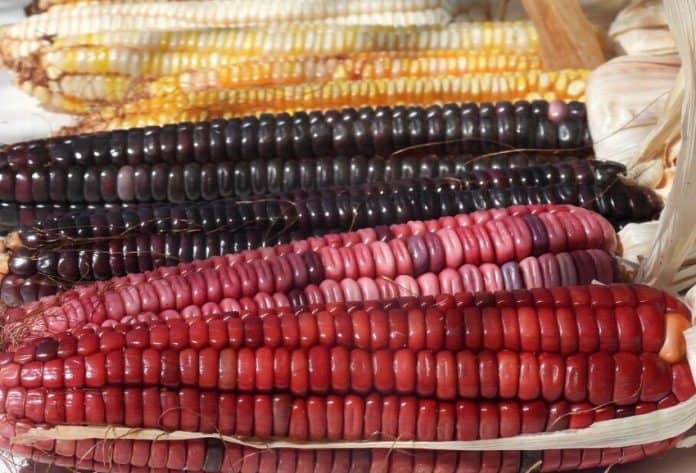The United States government has expressed “deep concerns” about Mexico’s plan to phase out genetically modified corn imports by January 2024.
U.S. Agriculture Secretary Tom Vilsack met with President López Obrador in Mexico City on Monday, and subsequently released a statement saying that the U.S. government could take steps to enforce its legal rights under the USMCA free trade pact if “acceptable resolution of the issue isn’t reached.”
“We appreciate the president welcoming us to Mexico and engaging in a productive dialogue. The meetings provided a venue to raise the United States Government’s and our producers’ deep concerns around President López Obrador’s 2020 decree to phase out the use and importation of biotech corn and other biotechnology products by January 2024,” Vilsack said.
“The president’s phase-out decree has the potential to substantially disrupt trade, harm farmers on both sides of the border and significantly increase costs for Mexican consumers,” he said.

“We must find a way forward soon and I emphasized in no uncertain terms that – absent acceptable resolution of the issue – the U.S. Government would be forced to consider all options, including taking formal steps to enforce our legal rights under the USMCA.”
Vilsack added that “the phase-out of biotechnology products, as outlined in the decree, could also stifle the important innovations we need to help our farmers adapt to a changing climate.”
The agriculture secretary’s meeting with López Obrador came two weeks after two Republican Party senators from Iowa wrote to U.S. Trade Representative Katherine Tai to express concerns about the plan to ban GM corn imports.
“Iowa is the leading state for corn production, growing 2.5 billion bushels per year. Iowa corn growers export 16 million tons, or 630 million bushels, of corn to Mexico each year. Any interruption to these shipments will severely affect our farmers and the state’s economy, and have dire economic consequences for the entire Corn Belt,” Joni K. Ernst and Charles E. Grassley wrote.
López Obrador on Tuesday said that government officials were “very clear” in the meeting with Vilsack that “we can’t allow” GM corn to be imported for human consumption.
“We’re self-sufficient in white corn and we’re not going to allow the importation of yellow corn for human consumption,” he told reporters at his regular news conference.
López Obrador noted that yellow corn has mainly been imported as livestock feed, and said that its “content” would be reviewed to see “whether it’s harmful to health, even when it’s used as fodder.”
The president said that Mexico offered to extend permits allowing the importation of GM corn imports for fodder by two years as that process occurs, but was adamant that such corn won’t be allowed to brought into the country as food for humans.
“We’re looking for the way for them to understand that trade is one thing … and health is another. And if we have to decide between health and trade, we choose health. … The agriculture secretary is a responsible person, he understood us,” López Obrador said.
“There are also mechanisms to resolve these disputes in the … [USMCA], but we have evidence to defend the reasons why genetically modified corn isn’t allowed,” he said.
“We’re going to wait and see if there is an agreement. … If an agreement isn’t reached, there are [dispute resolution] panels. And we’re not afraid of going to a panel; … we can’t give in to this request [from the U.S.],” López Obrador said.
Foreign Affairs Minister Marcelo Ebrard said Monday that the corn issue could be included on the agenda for the North American Leaders’ Summit to be held in Mexico City in January. Mexico and the United States are already engaged in dispute resolution talks over the former’s nationalistic energy policies.
In addition to phasing out GM corn imports, López Obrador decreed the elimination of the controversial herbicide glyphosate by 2024.
Published on December 31, 2020, his decree also said that biosecurity authorities would “revoke and refrain from granting permits for the release of genetically modified corn seeds into the environment.”
The objective of the decision is to “contribute to food security and sovereignty” and protect “native corn, cornfields, bio-cultural wealth, farming communities, gastronomic heritage and the health of Mexicans,” the decree said.
With reports from El Financiero and El Economista
